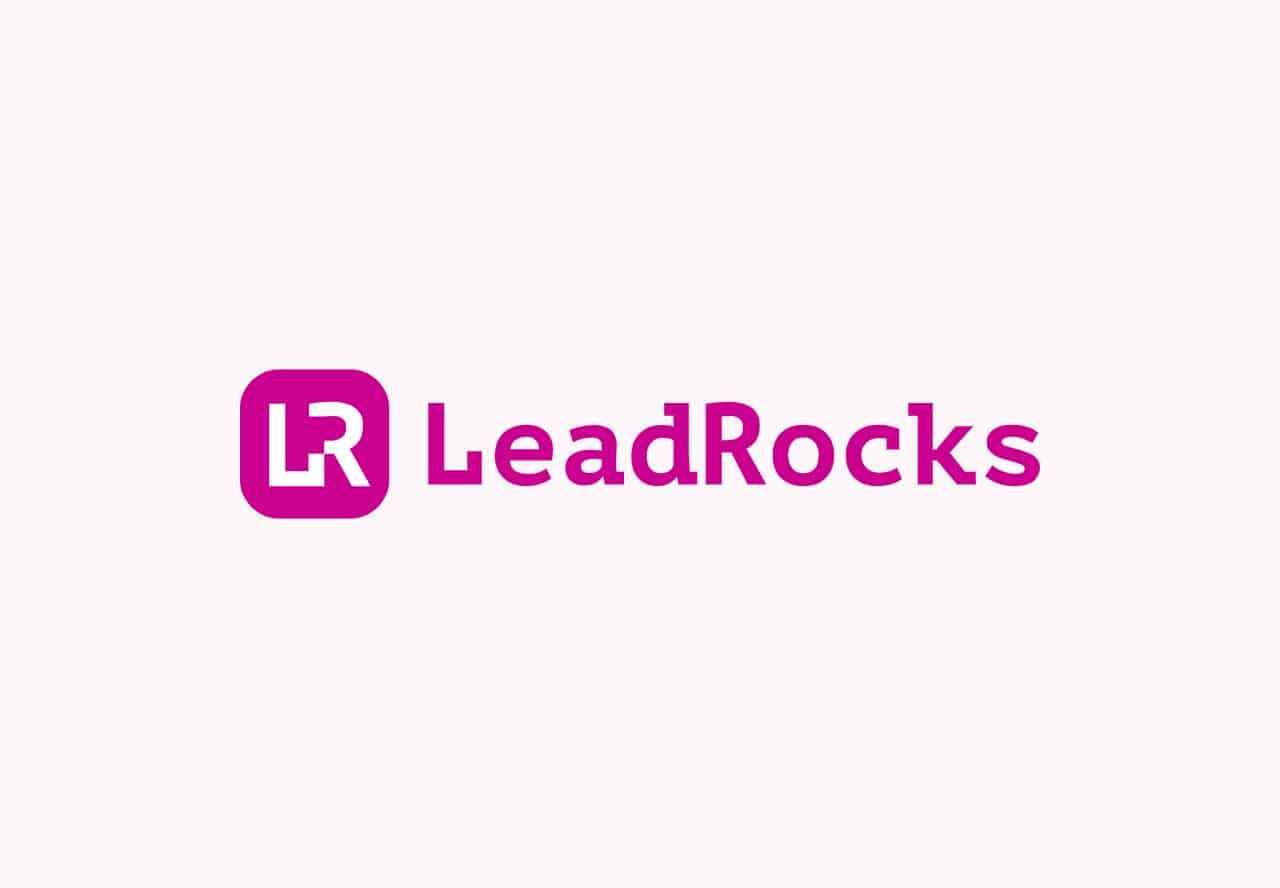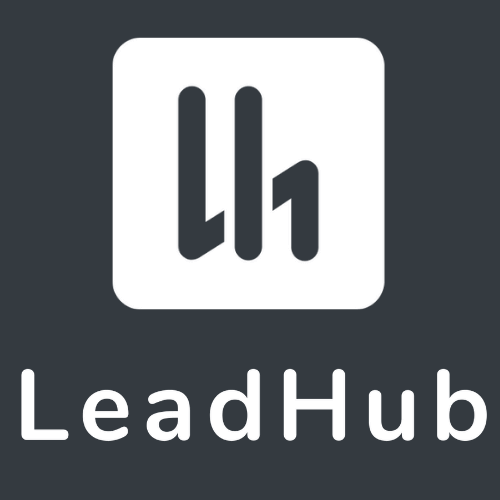Description

ProsperWorks CRM

LeadRocks

LeadHub
Comprehensive Overview: ProsperWorks CRM vs LeadRocks vs LeadHub
ProsperWorks CRM (now Copper CRM):
a) Primary Functions and Target Markets:
- Primary Functions: Copper CRM is a customer relationship management tool designed to integrate seamlessly with G Suite (now Google Workspace). It automates data entry, facilitates tracking of sales activities, and provides insights through reporting features. It is geared towards enhancing efficiency by eliminating repetitive processes and focuses on relationship-building rather than data management.
- Target Markets: Copper primarily targets small to medium-sized businesses (SMBs), particularly those using G Suite. It's popular among technology companies, real estate professionals, consultants, and creative agencies.
b) Market Share and User Base:
- Copper CRM holds a niche market share within the CRM industry due to its G Suite integration, appealing to businesses already using Google products. While it may not be as large as Salesforce or HubSpot in terms of user base, it benefits from a dedicated audience seeking ease of use and integration with other Google tools.
c) Key Differentiating Factors:
- The unique selling proposition of Copper is its native integration with Google Workspace, making it highly appealing to businesses entrenched in the Google ecosystem. It emphasizes relationship-building over data entry and boasts a minimalist and intuitive user interface.
LeadRocks:
a) Primary Functions and Target Markets:
- Primary Functions: LeadRocks is primarily a lead generation tool, providing users with B2B contact data to enhance outreach efforts. It supports finding and verifying business contacts and integrates with various platforms for direct marketing efforts.
- Target Markets: Its target market includes sales teams, marketing agencies, and small businesses looking to expand their outreach capabilities through access to extensive B2B contact databases.
b) Market Share and User Base:
- LeadRocks, as a specific lead generation tool, occupies a more defined segment within the larger lead generation and sales enablement market compared to CRM solutions. It tends to have a smaller user base focused on direct B2B contact enrichment.
c) Key Differentiating Factors:
- The key differentiator for LeadRocks is its focus on B2B contact data with verification capabilities. Unlike traditional CRMs, it specifically caters to enhancing lead quality and outreach efficiency.
LeadHub:
a) Primary Functions and Target Markets:
- Primary Functions: LeadHub offers lead management and marketing automation services. It helps businesses capture, nurture, and convert leads through automation workflows and customized marketing strategies.
- Target Markets: It targets marketing teams, SMBs, and enterprises looking for comprehensive lead management and nurturing capabilities, often in conjunction with existing CRM systems.
b) Market Share and User Base:
- LeadHub operates within the marketing automation sector, often competing with platforms like Mailchimp and ActiveCampaign. Its user base includes businesses looking to streamline their lead nurturing process with automated solutions.
c) Key Differentiating Factors:
- LeadHub differentiates itself with its focus on comprehensive marketing automation and lead nurturing, often integrating with CRMs to enhance lead management. It provides robust automation capabilities to manage and convert leads efficiently.
Comparison and Overview:
- Copper CRM: Focuses on CRM with an emphasis on G Suite integration for relationship management.
- LeadRocks: Concentrates on generating and enriching B2B leads for enhanced outreach.
- LeadHub: Specializes in lead management and marketing automation to nurture and convert leads.
In terms of market share, Copper CRM might have a broader usage due to its CRM capacities compared to the more niche functionalities of LeadRocks and LeadHub. The products' differentiating factors are pivotal to understanding their market segment appeal, with distinct features aligning with different business needs.
Contact Info

Year founded :
Not Available
Not Available
Not Available
Not Available
Not Available

Year founded :
Not Available
Not Available
Not Available
Not Available
Not Available

Year founded :
2011
Not Available
Not Available
United States
http://www.linkedin.com/company/lead-hub
Feature Similarity Breakdown: ProsperWorks CRM, LeadRocks, LeadHub
When comparing ProsperWorks CRM, LeadRocks, and LeadHub, let's break down their similarities and differences based on features, user interface (UI), and unique offerings.
a) Core Features in Common
-
Contact Management:
- All three platforms offer robust contact management capabilities, allowing users to store and track interactions with prospects and clients.
-
Lead Tracking:
- They provide lead tracking tools to monitor the progression of potential customers through the sales funnel.
-
Integration Capabilities:
- Each product integrates with various third-party applications like email services, calendars, and other productivity tools to streamline workflows.
-
Reporting and Analytics:
- Analytics and reporting features are available on all platforms to help users assess performance and identify trends.
-
Automation:
- Automation features for tasks like follow-up emails and reminders are present in all three, minimizing redundant manual work.
b) User Interface Comparison
-
ProsperWorks CRM (Now Copper):
- Known for its seamless integration with Google Workspace, its UI is clean, intuitive, and designed to look like an extension of Google apps. This makes it easy for users familiar with Google products to adapt quickly.
- The interface is user-friendly, providing functionality without excessive complexity.
-
LeadRocks:
- LeadRocks offers a straightforward UI with a focus on lead generation and enrichment. The design is minimalist, with an emphasis on quick access to tools needed for sourcing and managing leads.
- It's generally less cluttered, suitable for users who value efficiency over feature-rich displays.
-
LeadHub:
- The UI of LeadHub tends to be more customizable and allows for a more tailored experience. It often provides various dashboard views and is designed to cater to different sales and marketing scenarios.
- Offers a balance between functionality and user experience, appealing to users who need adaptability in their CRM interface.
c) Unique Features
-
ProsperWorks CRM (Copper):
- Unique for its deep integration with Google Workspace, it allows users to manage everything directly from their Gmail inbox.
- Advanced reporting matched with simplicity makes it ideal for small to mid-size businesses focusing on Google ecosystem.
-
LeadRocks:
- Stands out with its lead sourcing capabilities, allowing users to find contact information easily and efficiently.
- Offers LinkedIn integration for streamlined lead generation from professional networks, which is a highlight for B2B companies.
-
LeadHub:
- Known for its robust marketing automation features that can rival dedicated marketing platforms, providing a strong synergy between CRM and marketing tasks.
- It often includes comprehensive social media tools, allowing businesses to engage directly with leads on various platforms without leaving the CRM.
Each of these platforms caters to slightly different needs, and the best choice depends on specific business requirements such as team size, existing technological ecosystem, and the level of automation desired.
Features

Not Available

Not Available

Not Available
Best Fit Use Cases: ProsperWorks CRM, LeadRocks, LeadHub
When examining the best use cases for ProsperWorks CRM (now known as Copper), LeadRocks, and LeadHub, it's important to understand each tool's unique strengths and how they cater to different business needs. Here's a breakdown of each:
a) ProsperWorks CRM (Copper)
Best Fit Use Cases:
- Types of Businesses or Projects:
- Small to Medium-Sized Businesses (SMBs): Copper is specifically designed for SMBs that need a simple, intuitive, and easy-to-use CRM solution without extensive customization.
- G Suite/Gmail Users: Since Copper is built to integrate seamlessly with Google Workspace (formerly G Suite), it is ideal for businesses heavily reliant on these tools. It automatically logs and syncs communications and data.
- Sales Teams: Those needing to streamline their sales processes and improve customer relationship management can benefit from Copper's automation and pipeline management features.
Industry Verticals:
- Technology, Consulting, Real Estate, and Professional Services are key industry verticals where Copper's Google integration and simplicity can be highly advantageous.
b) LeadRocks
Best Fit Use Cases:
- Scenarios:
- Lead Generation Focus: LeadRocks is best suited for companies with a primary focus on building leads. It is designed to extract relevant contact information from various databases.
- B2B Marketing and Sales: Particularly useful for businesses looking to boost their B2B marketing and sales efforts by accessing a wide array of business contacts.
- Cold Outreach Campaigns: Ideal for organizations aiming to conduct large-scale cold email or LinkedIn campaigns as it helps uncover potential leads efficiently.
Industry Verticals:
- Marketing Agencies, Sales Firms, and B2B Companies benefit from the extensive contact databases that LeadRocks provides, ensuring they can continuously find and connect with new prospects.
c) LeadHub
Best Fit Use Cases:
- When to Consider Over Other Options:
- Complex Lead Management Needs: If a business needs advanced lead management features beyond simple CRM capabilities, such as detailed analytics and campaign tracking, LeadHub could be more suitable.
- Integration Requirements: When a business needs seamless integration with other marketing tools, LeadHub's capabilities to sync and collaborate can be valuable.
- Nurturing Customer Relationships: Especially useful for businesses focused on nurturing leads through detailed and personalized campaigns.
Industry Verticals:
- Often used by industries with longer sales cycles such as Real Estate, Automobile, and Financial Services, where lead nurturing is crucial.
d) Catering to Different Industry Verticals or Company Sizes
- Copper: Best for SMBs, particularly those within industries that thrive on customer relationships and utilize Google Workspace. It's less about the vertical and more about the operational setup.
- LeadRocks: More industry-agnostic but geared towards B2B environments where lead generation is the primary operational focus.
- LeadHub: Serves businesses that require more detailed lead management and nurturing capabilities, often fitting for companies with complex sales processes.
Ultimately, the choice between these tools will depend on specific business needs, existing workflows, and technology infrastructure. Each product offers unique features catering to different stages and aspects of the customer acquisition and management process.
Pricing

Pricing Not Available

Pricing Not Available

Pricing Not Available
Metrics History
Metrics History
Comparing undefined across companies
Conclusion & Final Verdict: ProsperWorks CRM vs LeadRocks vs LeadHub
To provide a conclusion and final verdict on ProsperWorks CRM, LeadRocks, and LeadHub, we'll evaluate their features, usability, pricing, and overall value. It's important to note that the best choice will depend on the specific needs and preferences of the user.
a) Considering all factors, which product offers the best overall value?
ProsperWorks CRM (now known as Copper CRM) likely offers the best overall value, especially for businesses heavily invested in the Google ecosystem. Its tight integration with Google Workspace allows for seamless workflow automation, and it provides a robust suite of CRM features that are well-suited for small to medium-sized businesses. Users looking for an all-in-one CRM solution will find Copper to be a valuable choice.
b) Pros and Cons
ProsperWorks CRM (Copper CRM)
- Pros:
- Google Workspace Integration: Excellent integration with Gmail and Google Calendar facilitates smooth workflows.
- User-Friendly Interface: Its intuitive design reduces the learning curve and enhances productivity.
- Automation Capabilities: Automation features help streamline tasks and improve efficiency.
- Cons:
- Pricing: Could be more expensive compared to other options, particularly for startups or small businesses.
- Customization: Some users may find customization options to be somewhat limited compared to more comprehensive CRM solutions.
LeadRocks
- Pros:
- Lead Generation: Strong focus on lead generation with tools designed to identify and gather quality leads.
- Data Accuracy: Provides a high level of data accuracy and verification, which is crucial for sales and marketing teams.
- Affordable Pricing: More budget-friendly, appealing to small businesses looking to maximize ROI on lead generation.
- Cons:
- Niche Focus: Primarily focused on lead generation, lacking comprehensive CRM functionalities.
- Integration Options: May have limited integrations with other business tools or require additional solutions for full CRM capabilities.
LeadHub
- Pros:
- All-in-One Solution: A balance of CRM and lead generation features, providing a more holistic approach for businesses.
- Customization: Offers various customization options to fit specific business needs.
- Scalability: Designed to grow with businesses, offering scalable solutions.
- Cons:
- Complexity: Might be overkill for small teams or startups with simple needs due to the range of features offered.
- Learning Curve: Could require more time to fully understand and leverage its functionalities due to complexity.
c) Specific Recommendations for Users
-
Choose ProsperWorks (Copper CRM) if you are looking for an easy-to-use CRM with strong integrations in the Google ecosystem. It's ideal for small to medium-sized businesses looking for workflow automation and enhanced productivity.
-
Opt for LeadRocks if your primary goal is to enhance lead generation and you need a cost-effective solution focused on collecting and validating leads. It's more suitable for businesses that already have a separate CRM solution but need a boost in lead quality.
-
Select LeadHub if you require more balanced CRM and lead generation functionalities and anticipate scaling your operations. It's particularly useful for businesses that need customization and an all-in-one approach from the start.
Ultimately, the choice between these tools depends on your company's specific needs, existing tech stack, and budgetary considerations. Evaluating these aspects against your business goals will help determine the most suitable option.